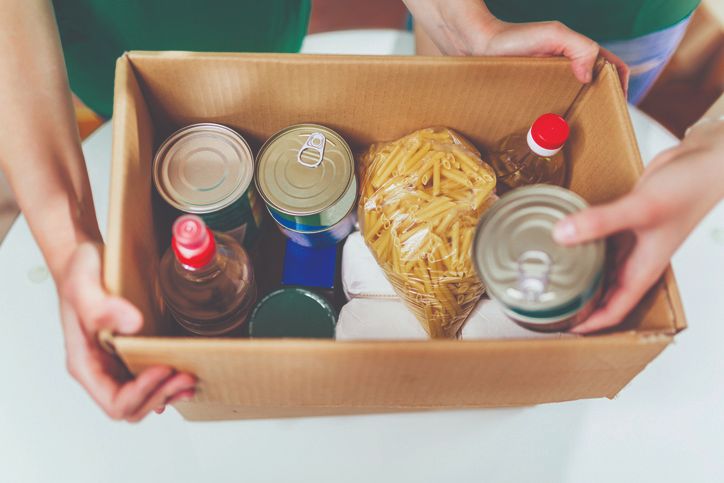Rapid relief from the ACT Government and the community sector may have spared Canberra residents from some food insecurities faced by Australians nationally during the pandemic.
The annual Foodbank Hunger Report released on Monday 12 October showed Australians seeking food relief at least once per week had increased from 15% to 31% this year.
However, St Vincent de Paul Canberra/Goulburn director of special works, Erin Macarthur, said the organisation hadn’t seen a large increase in demand for its food services.
“I suppose with Canberra we have been fortunate with COVID in the sense of food provision because the whole of the community and government helped the most vulnerable,” she said.
“What was wonderful is there was a lot of rapid response from the community sector and government.
“We were grateful for our team and working with government in providing emergency relief and keeping the most vulnerable safe.”
Communities@Work also felt a strong sense of support during the time, teaming up with the government-funded Canberra Relief Network to service its clients.
“During COVID we noticed a reduction in donations that were coming through and that reflected what was on the shelves for people to give,” said social program and volunteering director, Ruth Zanker.
“We partnered up with the Canberra Relief Network … they provided the food, and we provided the services and network to distribute it.”
The Foodbank report also showed three in 10 Australians who had not previously faced food insecurity had experienced it since the beginning of the pandemic.
Foodbank NSW & ACT CEO, Gerry Andersen, said the research taken between April and August showed the effects of COVID-19 on the wider community.
“The report highlights that, while need for food relief has become somewhat erratic and unpredictable, charities are reporting that overall demand is up by 47% and many of those now experiencing food insecurity (28%) have never before needed support,” he said.
“Those who were struggling before Coronavirus hit have been impacted more quickly and seriously than others.”
Foodbank NSW & ACT had also reported seeing new demographics facing food insecurity, including those aged between 18 and 25, casual employees and international students.
Ms Zanker said Communities@Work had also experienced a new client base during this time.
“Many of our regular clients had an increase in their pay so there wasn’t the need for them to come,” she said.
“But while there was a reduction there, we did see people of more complex needs; people newly unemployed, not eligible for Centrelink benefits or people who have medical conditions who could no longer afford their medication.”
In the report, 35% of food secure Australians reported not expecting to cope when additional government support for the pandemic ceases.
Ms Zanker said Communities@Work has planned for their own forecast of increasing demand between now and February 2021.
“We have started building our community pantry and will be coming back double the size to address the need we see is coming,” she said.
Ms Macarthur said St Vincent de Paul has seen the increased JobSeeker payments as welcomed relief for many Australians and would support a higher rate in the future.



